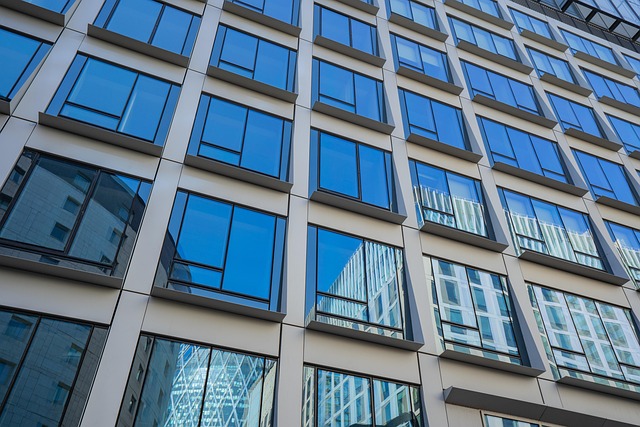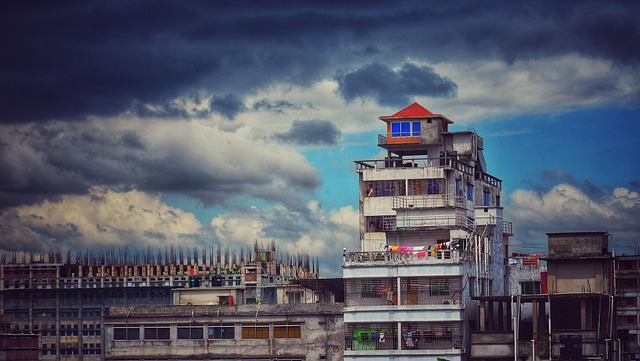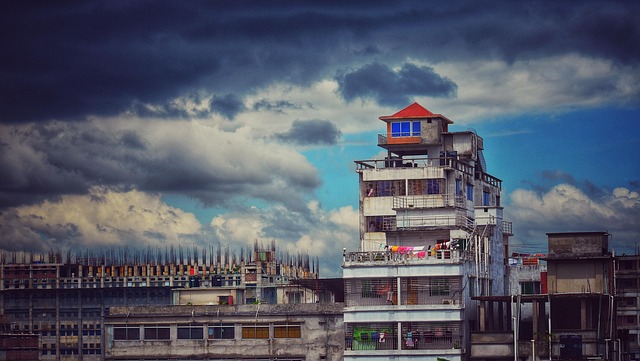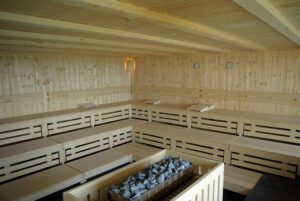Gas-fired water heaters in commercial settings face significant corrosion risks due to high-pressure, hot water applications and aggressive water chemistry. Stainless steel is a crucial material for its superior corrosion resistance, enduring extreme temperatures and pressure, ensuring longevity and reliable performance. Advanced insulation, specialized coatings, regular maintenance, and proper component protection are essential for optimal operation and safety in demanding institutional environments.
In the bustling commercial landscape, stainless-steel gas-fired water heaters are indispensable. However, these units face unique corrosion challenges due to their constant exposure to varying water chemistries and high-temperature operations. Understanding corrosion in commercial settings is crucial for maintaining these heaters’ longevity and efficiency. This article explores the role of stainless steel, delves into the specific corrosion challenges of gas-fired heaters, and provides effective resistance mechanisms along with essential maintenance tips.
- Understanding Corrosion in Commercial Settings
- The Role of Stainless Steel in Water Heaters
- Gas-Fired Heaters: Unique Corrosion Challenges
- Effective Corrosion Resistance Mechanisms
- Maintenance Tips for Longevity and Efficiency
Understanding Corrosion in Commercial Settings

Corrosion is a significant concern in commercial settings, particularly when it comes to gas-fired water heaters. In industrial environments with high-pressure gas systems like those used for commercial water heating, restaurant water heating, and hotel hot water systems, corrosion can lead to costly equipment failures and safety hazards. The harsh conditions, including exposure to corrosive substances, varying temperatures, and moisture, accelerate the degradation of metal surfaces in storage water heaters or tankless water heaters, making them susceptible to rust and damage.
Commercial gas heaters, designed for high-capacity industrial hot water applications, must withstand these challenging environments. Unlike residential gas-fired water heaters, commercial water heating systems often operate at higher pressures and temperatures, necessitating robust materials and advanced corrosion resistance technologies. Manufacturers address this through innovative designs featuring stainless steel construction, enhanced insulation, and specialized coatings to prolong the lifespan of these heaters and ensure reliable institutional water heating solutions.
The Role of Stainless Steel in Water Heaters

Stainless steel plays a pivotal role in the construction of commercial gas-fired water heaters, offering exceptional resistance to corrosion. This durable material is particularly well-suited for demanding industrial environments where water heaters are exposed to harsh conditions and aggressive water chemistry. In the context of commercial water heating, stainless steel provides several key advantages.
Commercial gas heaters, especially those designed for high-capacity applications like restaurant water heating or hotel hot water systems, benefit from stainless steel’s ability to withstand high temperatures and pressure without compromising structural integrity. Moreover, tankless water heaters and storage water heaters built with stainless steel components offer superior corrosion protection, ensuring longevity even in the face of mineral deposits and varying pH levels commonly found in institutional water heating systems.
Gas-Fired Heaters: Unique Corrosion Challenges

Gas-fired water heaters, a common choice for commercial and industrial applications, present unique corrosion challenges due to their design and operating environment. Unlike electric water heaters, gas fired systems are exposed to combustible gases, which can lead to accelerated corrosion of certain materials, especially in humid or high-temperature conditions. The presence of oxygen, moisture, and varying fuel compositions contribute to a complex corrosional environment.
In commercial water heating applications like restaurants, hotels, and institutional settings, these heaters often operate continuously at high capacities, exposing them to prolonged stress. Corrosion can occur not only on the exterior surfaces but also internally within tanks and heat exchangers. The impact is significant, leading to reduced heater lifespan, efficiency losses, and potential safety hazards in extreme cases. Therefore, selecting robust materials and implementing effective corrosion protection strategies are paramount for reliable operation of commercial gas fired water heaters.
Effective Corrosion Resistance Mechanisms

Commercial gas-fired water heaters are designed to withstand demanding conditions, often in harsh environments like restaurants and hotels, where they provide reliable hot water for various applications. Their corrosion resistance is a critical factor ensuring longevity and optimal performance. Effective mechanisms come into play to combat corrosion, especially in these industrial settings with high-capacity requirements.
One prominent strategy involves the use of superior stainless steel, which forms a protective layer on its surface known as passivation. This natural defense mechanism enhances the metal’s resistance to oxidation and chemical attacks. Additionally, advanced gas fired systems may incorporate specialized coatings or linings within the tank to further barrier corrosion. Such innovations are vital for commercial water heating applications, ensuring efficient and safe hot water production without compromising the integrity of the equipment, even under heavy usage in institutional water heating scenarios.
Maintenance Tips for Longevity and Efficiency

Regular maintenance is key to ensuring your commercial gas-fired water heaters perform optimally and resist corrosion over their lifespan. First and foremost, establish a consistent cleaning routine. Sediment buildup can accumulate in tanks and pipes, leading to reduced efficiency and potential damage. Use a combination of chemical cleaners and regular flushing to remove any debris or mineral deposits.
Additionally, keep an eye on pressure relief valves for proper functioning. These valves are crucial for maintaining safe operating pressures within the system. Regularly inspect and replace any worn-out parts, such as O-rings and gaskets, to prevent leaks. For industrial hot water applications like restaurant water heating or hotel hot water systems, consider installing tankless water heaters for enhanced efficiency, as they eliminate energy loss from standby heat. This not only prolongs the life of your commercial gas heaters but also contributes to significant cost savings in institutional water heating.
Commercial gas-fired water heaters, constructed with stainless steel, offer an effective solution to corrosion resistance. By understanding the unique challenges posed by these environments, and leveraging the inherent properties of stainless steel, these heaters can provide reliable performance for years to come. Regular maintenance, as outlined in this article, is key to maximizing their longevity and efficiency, ensuring a robust and sustainable hot water supply for businesses.
